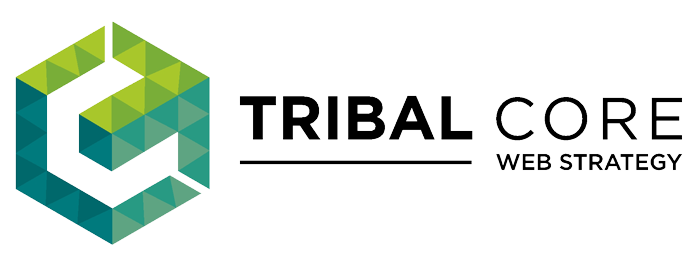Published: September 26, 2020
I’m a grizzled old veteran of the internet.
I logged on to BBS’s in the early-80s. I built my first client website in 1996. I created the New Media department for a record label in 1997 and attended the first MP3 Summit in 1998.
I founded Tribal Core in 2002, and I was in the trenches when the music industry sued its customers in 2003, when it couldn’t put the file-sharing genie back in the bottle. We ran our first Google Ads some time around 2006.
From Napster, MySpace and Friendster to Facebook, Twitter and Instagram, I’ve had a front-row seat to the rise of social media.
A dozen years ago, social media stories were remarkable: people found childhood friends, old teachers, long-lost lovers. Facebook, in particular, was advancing technology that was changing the world, much as previous technologies had done – email, telephone and even the internet itself. It was communication and connection that was driving the web.
As their revenue increased, from profitability in 2009 to $19 billion in 2019, so too did their focus on user behavior. The endless scroll became ubiquitous, and before long, everywhere you looked, people were staring at their phones.
From an advertiser’s standpoint, reaching audiences through Facebook is largely unparalleled. Want to reach the thousand people in Portland that like the BMW 3 Series and read Architectural Digest? Not a problem with Saved Audiences. Want to reach a million people that share similar demographics and psychographics to your customers? Just upload your customer data and create Lookalike Lists.
As a marketing agency, we’ve used Facebook and Instagram Ads to help our clients sell products, generate leads and put butts in seats. We’ve worked with some of the world’s largest spiritual organizations, organic brands and universities, each using social media and the web to reach their audience and make the world a better place.
But gnawing at me, in the back of my brain, was a growing disgust with it all.
Why is their ad platform so fragmented, and so difficult to get permissions in place?
Why do I have to be Friends with my clients to get admin access to a Facebook Page?
Why is their support so opaque and almost non-existent?
Why does it seem like Facebook is being run by children, in comparison to their brethren over at Google?
That’s just an advertiser’s perspective. I was disturbed by the addiction I saw in young and old generations alike. The inability to put the phone down. The constant scrolling. The pervasive texting and messaging. Tech execs who don’t allow their kids to have screens. My own Pavlovian reaction to the ding of a notification.
The ickiness quotient was compounded by stories of Facebook’s technology being used to promote hate and division.
An algorithm that “actively promotes” Holocaust denial.
A platform that is complicit in perpetrating genocide against Rohingya Muslims in Myanmar.
A revenue model that accepts ad money from China to help spread anti-Muslim propaganda, perpetuating the oppression of the Uighur minority in concentration camps.
A company that ignores live-streamed suicides because the “video did not breach its Community Standards.”
A company that was sued by and had to pay a huge settlement to content management contractors who are suffering from PTSD.
A company that only fessed up to a massive data breach that likely impacted the 2016 election after it was caught, data that was weaponized by recently-indicted Steve Bannon and Cambridge Analytica.
A company that failed to stop dangerous QAnon conspiracies that use Nazi eliminationist rhetoric.
A platform that is fueling anti-mask sentiment amid Coronavirus “hoax” conspiracy theorists.
What a god-awful shit-show it all is, the AI-driven manipulating of our consciousness in pursuit of advertising dollars, and it is accelerating in the face of the 2020 election.
When an early investor in Facebook says “Facebook is a threat to whatever remains of democracy in the US,” I have to listen and to act. When The Social Dilemma on Netflix confirms my repulsion to the rank manipulation we all experience (h/t Center for Humane Technology), I have to listen and act.
Ethically, I can no longer succumb to the allure of advertising to captive, doomscrolling audiences.
Morally, I can no longer contribute to a platform that is shortening the attention span of entire generations to be less than that of a goldfish.
I can no longer hide my disgust of Influencer Marketing, and it’s shallow, vapid, self-centered appeal.
And so, we’ll no longer offer Facebook and Instagram Ads Management. We may lose some business, and we may not. It doesn’t matter. I’ll sleep better tonight, knowing that we serve our clients with integrity.
Zen master Thich Nhat Hanh has said “my actions are my only true belongings.” What burdens, then, do we carry with us as technology pervades every nook and cranny of our lives?
We can choose a path that we walk in good conscience. We can choose an ethical way, and maybe help others who are grappling with the same decisions. We can act from a place of love and compassion. We can look out for each other, regardless of race or orientation or politics. These are the choices we make each and every day.
In gratitude,

Tyler Suchman
Founder, Tribal Core


Comments
Good work Tyler. Thank you for taking a stand. I’m down to managing two pages, and I’d like to shut them down. but haven’t done so yet.
Now you need to drop Google Analytics. We just switched Plum Village to Matomo. It’s a self hosted solution but we don’t have to deal with the beast.
Peace.
Kenley, thanks for the nice thoughts. You were one of the pioneers, divesting themselves of anything Facebook. Just googled Matomo, formerly Piwik, interesting, will have to take a look. Cheers!
Hey Tyler, sounds good dude!
Jonathan – thanks for the nice thought! Been too long, hope you are doing great.
Well said! Nice work Man!!!!!
Right on, thanks Chris – best to you and Terri!